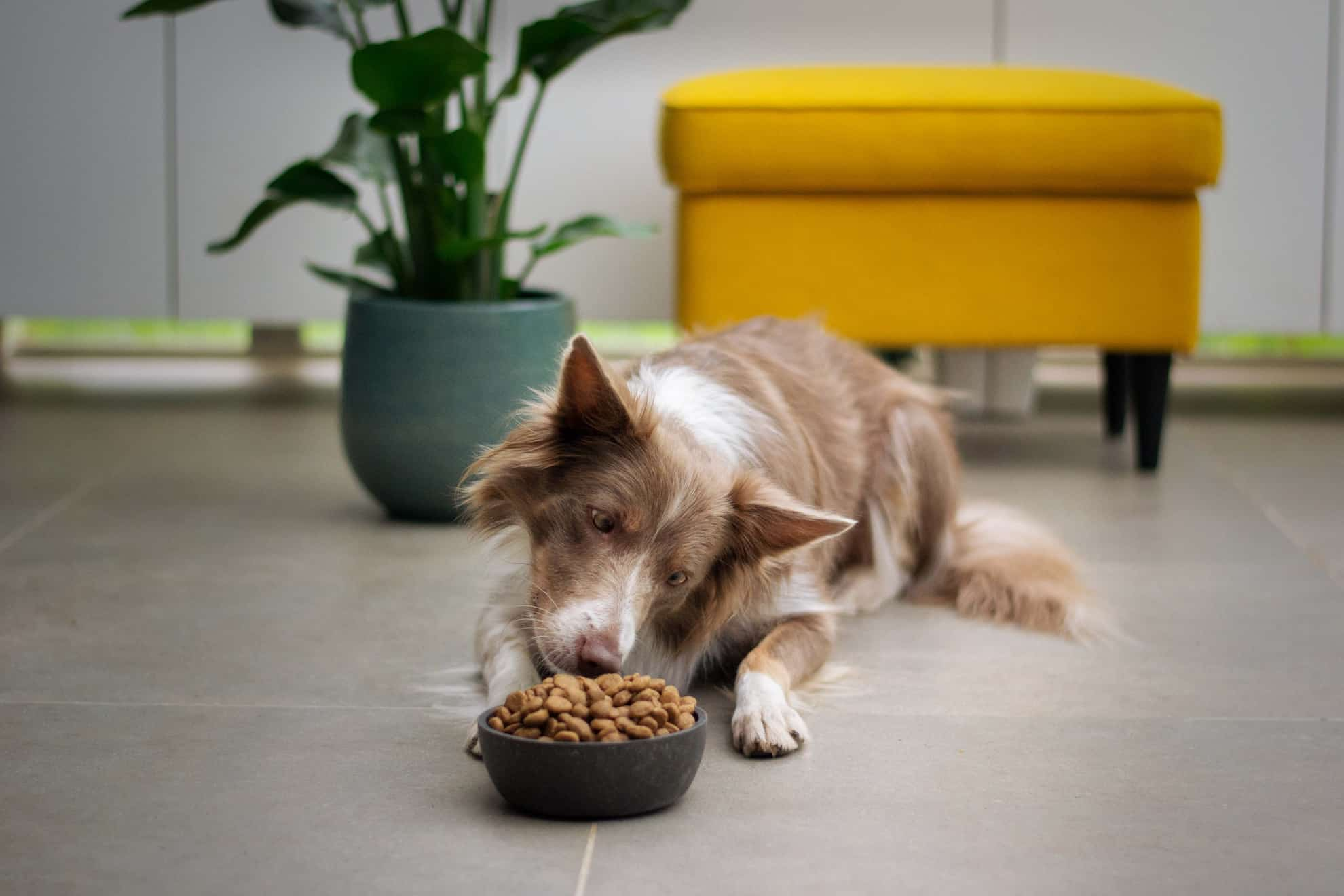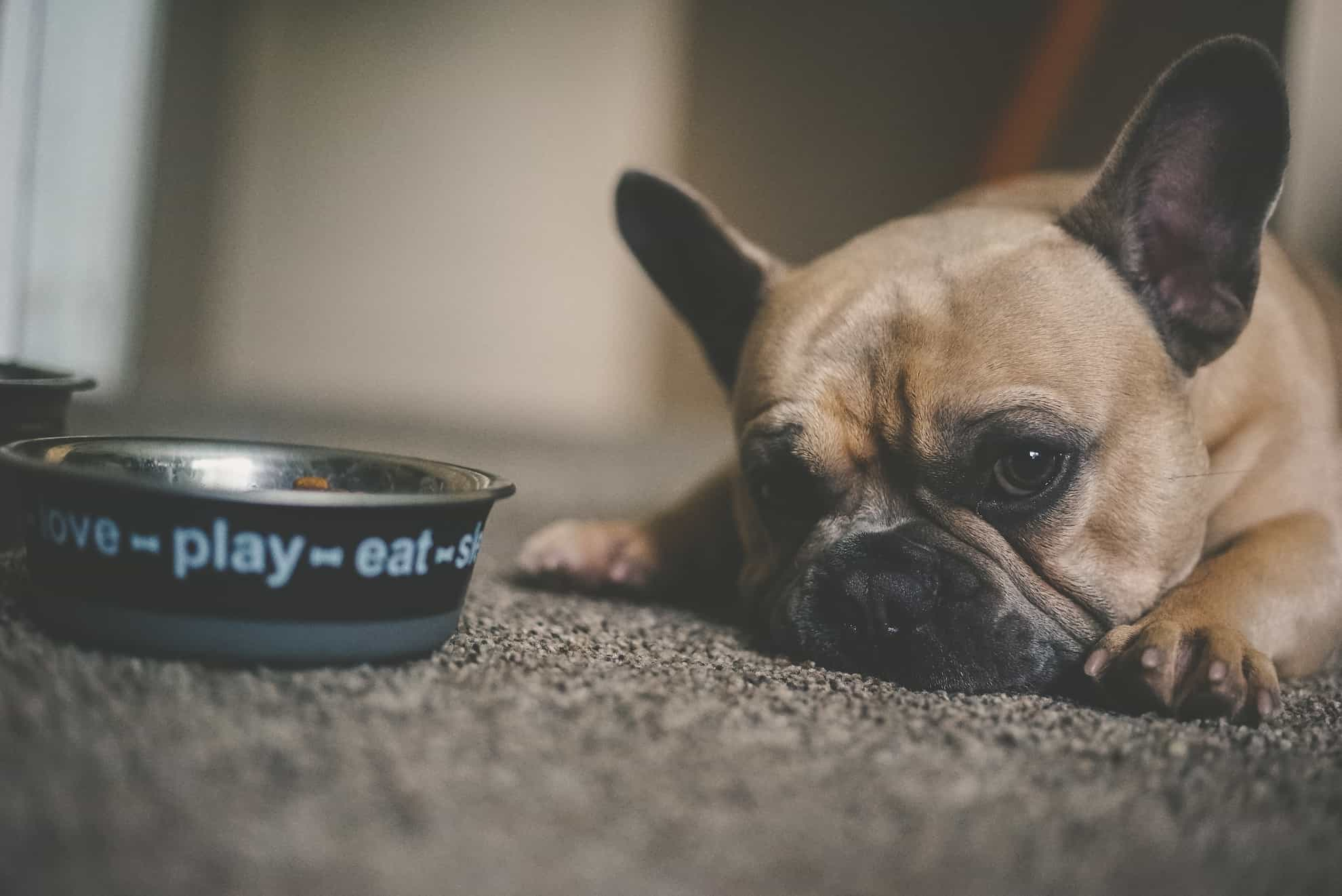Table of Contents
Summary | Carbohydrates | Calories | Protein | Avoid Digestive Problems | Moderation and Snacking | Water

Summary:
"As a dog owner, you always want the best for your dog. And that includes providing them with a healthy diet that will ensure they're happy and healthy all their life. Just like humans, your pet also needs to eat a variety of foods and make sure its body is getting all the nutrients it needs. However, there are some key differences between the two species' nutritional requirements, and this means feeding your dog can be a little more complex than you'd first think. So what do you need to look out for when it comes to giving your dog a balanced diet? In this article, we'll give you six tips that will help keep your dog in the best of health, by ensuring it's having a balanced diet."
Make Sure Your Dog Is Getting The Right Type of Carbohydrates
Dogs can benefit from carbohydrates just like people can. However, they need to be careful about the type of carbs that you give them. For example, pretzels or white bread are not ideal choices because they don't contain any nutrients and your dog will probably eat them very quickly. Instead, think about choosing healthier options like sweet potatoes. Healthy types of carbs found in Redford dog food provide your pet with energy to burn throughout the day, so it's better for their health in the long term. You should also be careful when giving your dog grains (wheat products) as these can cause problems if eaten regularly over some time.
Make Sure Your Dog Is Getting The Right Amount Of Calories Every Day
When deciding what to feed your pooch, you need to think about how much food they're going to be eating every day. Calories are the units that measure how much energy your dog gets from the food it eats. So, if you have an active dog that spends most of its time playing outside, then it may need to eat more calories than a lazy dog that spends its days on your couch. When your dog is very young, it can be hard to tell whether they're eating the right amount of calories, so you might need to get help from a vet for this. The easiest way to work out how many calories your dog should be eating is to look at the feeding guidelines on their food packet.
Make Sure Your Dog Is Getting Enough Protein
One of the most important parts of your dog's diet is protein. Proteins are complex molecules made from amino acids. Amino acids are the smallest units in proteins and they're essentially the building blocks for your pet's body. As a result, they're essential if you want to keep your canine healthy. Since dogs need to get the majority of their essential amino acids from outside sources, they must be getting enough protein through their food every day. For adult dogs, the amount of protein they need depends on their weight and activity levels. As a general rule of thumb, most dogs will benefit from having somewhere between 15-25% of their daily calorie intake coming from protein.
Be Wary Of The Foods That Can Cause Digestive Upset
Whilst dogs are generally pretty good at dealing with the foods that can make other species sick, they should still be approached with caution. This is because some meats and vegetables may cause problems for your dog if they're not introduced in the right amounts or are given too regularly. If you want to keep your canine healthy and active, there are certain fruits and vegetables you need to avoid giving them for this reason. Vegetables like avocado, cauliflower, cabbage, and Brussels sprouts all contain compounds that can affect a dog's digestion. As long as these types of food are prepared properly (cooked through), then it shouldn't have any adverse effects on them.
Be Aware of What You Give Your Dog For Snacks
If you're going to be giving your dog snacks throughout the day, then they need to be a healthy option. This is because treats can contain lots of calories that can lead to weight gain if they're eaten over a long period. If you want your pooch to maintain a healthy weight, only give them healthier snacks like pieces of vegetables or small bits of cheese. Remember that whenever you include snacks in your dog's daily diet, they should never make up more than 10% of their calorie intake. You should also reduce your dog's meal portions by the same amount so that they're still getting enough calories to maintain a healthy weight.
Ensure Your Dog Is Getting The Right Amount Of Water
Dogs need to drink water regularly to stay hydrated and flush out toxins from their body. However, if your pet is unhealthy or has been put on a new diet recently, then you should take extra care when making sure they have enough water. For example, if your pooch is going through a diet or workout routine that has increased its calorie intake significantly, then it will need more fluids to compensate for the extra energy expenditure. As a result, you may want to give them more water than usual during this time. If you're unsure about how much water your dog needs, then the best option is to ask your vet.

Overall, providing your pet with a balanced diet is essential for their long-term health. This means giving them the right amount of nutrients at each meal and making sure they're getting enough exercise throughout the week. By following these tips, you can make sure that your canine companion has all the energy it needs to stay active and healthy for years to come.
